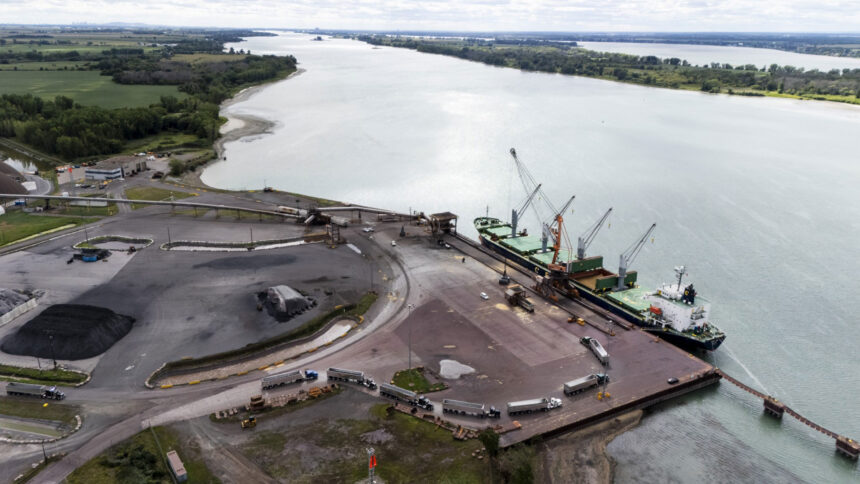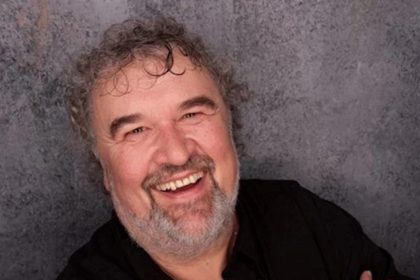In a long-awaited announcement, Prime Minister Mark Carney laid out the first five projects his government intends to fast-track as part of new legislation aimed at accelerating federal development plans in the “national interest.” At a news conference in Edmonton, Carney said the projects were chosen within the context of major Canadian historical undertakings such as the construction of the national railway, the Trans-Canada Highway, the St-Lawrence Seaway, and Expo 67, which Carney noted was accomplished in only four years. “The initiatives we’ll announce today will help transform Canada’s economy from one that had become too reliant on a single trade partner, to an economy that is resilient and dynamic, an economy built for Canadian workers and their families, on the strong foundations of our industries and new diverse trading partners,” Carney said. “That is how we will build Canada Strong.” The projects consist of expanding the LNG Canada liquified natural gas terminal in Kitimat, B.C., expanding a gold and copper mine in Dease Lake, B.C., which Carney said would increase Canadian copper production by 15 per cent; expanding the McIlvenna Bay copper mine project in central Saskatchwan, which aims to make the mine the first carbon-neutral copper project in Canada; launching Canada’s first small-modular nuclear reactor in Ontario and building the Contrecœur Terminal container depot 40 kilometres northeast of Montreal, which Carney claimed would expand the Port of Montreal’s capacity by 60 per cent. Claiming Canadian regulatory requirements have increased by 40 per cent over the past two decades, preventing nine per cent of business growth, Carney decried approval processes requiring consecutive reviews and assessments he said could be completed simultaneously. “For too long,” Carney said, “when federal agencies have examined a new project, their immediate question has been ‘Why?’ That changes now. From now on, Canada’s new government starts by asking ourselves, for major projects, ‘How?’ How can we do it bigger? How can we do it faster?” As part of the contentious Bill C-5, which became the One Canadian Economy Act, Ottawa can (with cabinet approval) bypass environmental legislation and wildlife-protection laws to push through projects determined to be “in the national interest.” Last month, Carney launched the Major Projects Office (MPO) to accelerate regulatory approval and coordinate financing. Today, Carney underlined the five characteristics of the major projects his government intends to take on. “To be in Canada’s national interest,” he said, “a major project must strengthen Canada’s autonomy, our resilience, and our security. It must have clear benefits for Canadians. It must have a high likelihood of being completed, which must contribute to clean growth and Canada’s climate goals, and it must advance the interests of Indigenous Peoples.” Read more: Carney’s Major Projects Office already under fire from First Nations, environmental groups Resolutions countering Canada’s One Canadian Economy Act fail to pass at AFN assembly The One Canadian Economy Act stresses “the Minister must ensure that a process is established that allows for the active and meaningful participation of the affected Indigenous peoples and that a report of the consultation process and results is made available to the public within 60 days after the day on which a document is issued.” However, the act does not specify how “active” and “meaningful participation” can be measured or confirmed. Many Indigenous leaders are skeptical of Carney’s plan. After several meetings in the summer, leaders said they’re still not clear on how the consultation process will work or whether meetings will be scheduled ahead of planned projects. On Wednesday, as part of the MPO, Carney announced the members that will compose the Indigenous Advisory Council. Kluane Adamek, Kluane First Nation, Yukon Chief Darcy Bear, Whitecap Dakota First Nation, Saskatchewan Vanessa Doig, Makivvik, Nunavik, Northern Québec JP Gladu, Bingwi Neyaashi Anishinaabek, Ontario Victoria LaBillois, Listuguj Mi’gmaq First Nation, Québec Grand Chief Trevor Mercredi, Beaver First Nation (Treaty 8), Alberta Chief Terry Paul, Membertou First Nation, Nova Scotia Lorne Pelletier, Manitoba Métis Federation, Manitoba Christy Sinclair, Nunavut Tunngavik Inc., Nunavut Crystal Smith, Haisla Nation, British Columbia Matt Vermette, Métis Nation-Saskatchewan According to a press release from the prime minister’s office, the IAC “will help guide the MPO’s work to ensure that major projects create opportunities for equity ownership and responsible resource management through meaningful participation with Indigenous Peoples.” Yet it is unclear what powers the IAC will hold, and whether they will have the authority to veto projects before the MPO. Prime Minister Mark Carney announces the first five nation-building projects his government intends to undertake. Screengrab from CPAC. The prime minister stressed the key goals of his government’s shift to accelerate the completion of major projects, musing that the projected eight-year plan to build a high-speed rail corridor between Toronto and Quebec City could instead be accomplished in four years, which he said would save $8-billion per year. But Carney also argued that Indigenous partnership must be central to the process of accelerating major projects. “This summer I hosted three summits to engage First Nations, Inuit, and Métis rightsholders on their priorities, and to explore the opportunities for equity, ownership and broader economic benefits from this generational transformation in the Canadian economy.” Those summits were controversial events to which some Indigenous leaders took great issue. At a meeting in Gatineau, Atikameksheng First Nation Chief Craig Nootchta sarcastically thanked the prime minister for hosting “This subjugation session, not a consultation session.” “We won’t give consent unless Canada really holds true to the word here today that they’re going to seek free, prior, informed consent for future projects,” Nootcha argued. “You say to us, we’re going to come to you and we’re going to consult with you, but at the end, you just delegate your authority to a proponent who then we have to fight with for resources to negotiate with them.” At the same gathering, Chief Tony Alexis of the Alexis Nakota Sioux Nation told Carney that leaders weren’t happy with the government’s actions. “The people that are gathered here came a long way to share that what Canada’s doing is not correct,” he said. “We don’t see us being a part of it. So everybody that you see here is coming from a place of questioning you and asking Canada, what are you doing? It’s more of a protest that you’re experiencing here. It’s not an engagement.” However, Indigenous Services Minister Mandy Gull-Masty, from the Cree Nation of Waswanipi, underlined her trust in Carney and the power of the Indigenous Advisory Council in a post on the X platform on Thursday. “Today‘s announcement is about building a stronger Canada with Indigenous Peoples at the decision-making table,” Gull-Masty wrote. “Congratulations to all those who will lead the Indigenous Advisory Council!” Meanwhile, environmental organization Ecojustice expressed displeasure at the five projects’ partial focus on fossil-fuels. In a press release, Ecojustice rejected Carney’s suggestion of “a grand bargain,” by which Canada could invest in major decarbonization projects in order to balance out damage to climate from the oil sands and the sale of liquified natural gas. “‘Turbo charging’ our LNG exports will not make life more affordable for Canadians,” reads the press release, “but it will help worsen the heatwaves, wildfires, storms and floods that increasingly threaten communities across this country. […] A ‘grand bargain’ based on the massively subsidized Pathways carbon capture project coupled with a potential new export pipeline will not solve the housing crisis or boost clean energy, but it will send good money after bad to prop up corporate oil sands profits as global oil demand enters an era of terminal decline.” Furthermore, Ecojustice warned that Carney’s plan to announce more major projects in the national interest by the time of the Grey Cup in November contradicts Ottawa’s obligation to consult meaningfully with Indigenous peoples. However, in a Q&A following his address this afternoon, Carney argued the projects his government has selected have already been meaningfully consulted upon. “In all these cases, the consultations and the engagement with Indigenous peoples is very advanced,” he said, “so the support is there with indigenous partners. Much of the other work has been done.” A massive mining project in the James Bay Lowlands in Ontario known as the Ring of Fire was not part of Thursday’s announcement. But both the federal and provincial governments are eyeing its rich mineral potential and are putting millions of dollars into developing infrastructure and training. Continue Reading
Prime minister announces 5 major national projects that include LNG, mining and nuclear energy

Leave a Comment










